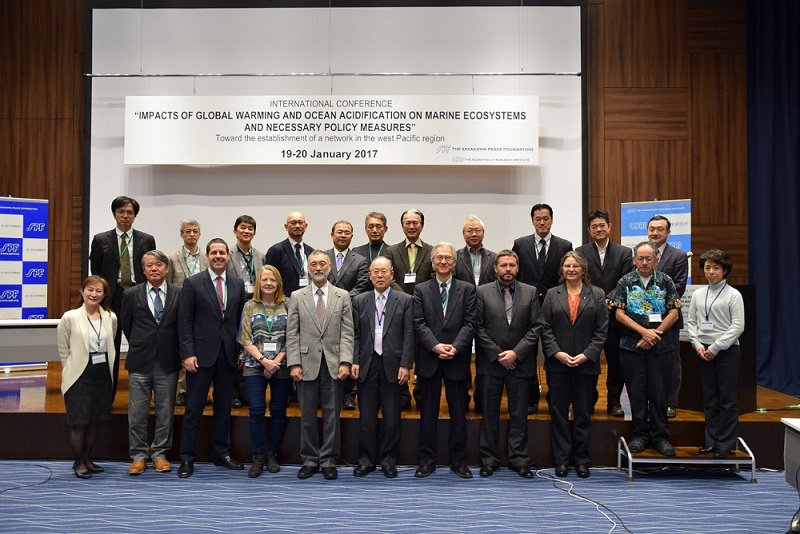News
Conference Results: "Impacts of Global Warming and Ocean Acidification on Marine Ecosystems and Necessary Policy Measures - Towards the Establishment of a Network in the West Pacific Region"
With recent progress in scientific research, there has been a greater international focus on the issues of global warming and ocean acidification at the policy level. Beginning with its inclusion in the United Nations Conference on Sustainable Development (Rio+20) outcome document in 2012, calling "for support to initiatives that address ocean acidification and the impacts of climate change on marine and coastal ecosystems and resources," the issue was taken up as a matter of concern at the Third International Conference on Small Island Developing States in 2014 and at the United Nations Sustainable Development Summit in 2015 (resulting in the adoption of "2030 Agenda for Sustainable Development"). Notably, in the Sustainable Development Goals (SDGs) of the 2030 Agenda, Goal 14.3 stressed the need to "Minimize and address the impacts of ocean acidification, including through enhanced scientific cooperation at all levels," showing that it is an issue of major importance, requiring the development of countermeasures. In the lead up to "The Ocean Conference," a U.N. conference on SDG 14 to be held in June 2017 at U.N. Headquarters, there have been increased calls for concrete countermeasures regarding this issue.
In order to address these issues, OPRI-SPF hosted the international conference "Impacts of Global Warming and Ocean Acidification on Marine Ecosystems and Necessary Policy Measures" in Tokyo on 19-20 January 2017. Attended by more than 140 participants, the conference shared information on conditions in the west Pacific region, discussed potential issues and countermeasures, and the creation of a network for the region.

Group photo of the presenters, discussion moderators, and OPRI-SPF researchers at the conference.
For further information, please refer to the attached documents and link below:
Proceedings (in four parts): Part 1, Part 2, Part 3, Part 4
Interview with Dr. Carol Turley (Plymouth Marine Laboratory)